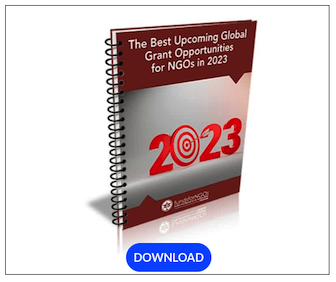
Deadline: 27-Feb-23
Education out Loud is seeking qualified and engaged Regional Learning Partners to support learning and capacity development among civil society coalitions and organizations.
Education Out Loud (EOL) is the Global Partnership for Education’s (GPE) fund for advocacy and social accountability. EOL supports civil society to be active and influential actors in shaping education policy and implementation to meet the needs of communities, especially of marginalized people – and to ensure the right to quality education for all in line with SDG4.
EOL aims to enhance civil society capacities to engage in education sector planning, advocacy and policy dialogue, monitoring and evidence of policy implementation to promote transparency and accountability of national education sector policy. It also seeks to create a stronger and enabling environment at global and regional levels for civil society engagement, advocacy, and transparency efforts in education.
Education out Loud Objectives
The overall Goal of Education Out Loud is to:
- Contribute to promotion of inclusive, gender responsive and equitable national education policies and systems through enhanced civil society capacities and participation in social accountability and policy advocacy processes
- This is done through the three EOL objectives:
- Strengthen national civil society engagement in inclusive and gender responsive education planning, policy development, implementation, and monitoring.
- Strengthen civil society roles in promoting the transparency and accountability of national education sector policy and implementation; and
- Create an enabling transnational environment for civil society policy advocacy and transparency efforts in education
Eligible Regions
Oxfam IBIS therefore invites applications from expert organizations, centers of excellence, institutions (NGOs, INGOs, Academic/Research Centres, Think Tanks, Consultancies etc.). National Education Coalitions, its members, or other Networks/Coalitions outside the EOL grantee portfolio with formal registration are also eligible as Learning Partner pre-qualification. Applicants may apply to support capacity development in one country or in a collection of countries depending on their location, contextual knowledge, language competences, experience, and resource capabilities. Applicants should demonstrate their experience and knowledge from one or several of the countries in the relevant region or across regions:
- Latin America and the Caribbean (LAC)
- Asia Pacific (AP)
- Horn, East and Southern Africa (HESA)
- West and Central Africa (WCA)
Note that the EOL division of countries is administrative not corresponding to the geographical or political division in regions.
Criteria
- Share EOL values and goals concerning a rights-based approach to civil society participation and education, i.e., holds legitimacy among CSOs.
- Demonstrate strong experience of working with CSOs, including alliances, coalitions, and community-based civil society actors.
- Demonstrate strong expertise in relevant thematic, advocacy or organizational fields.
- Preferably a strong grounding in the global South.
- Capacity to work in relevant contexts and languages as per grantee needs especially English, French, Spanish, Portuguese, and Arabic depending on the region where the Learning Partner is applying.
- Capacity to work with the human rights-based approach and gender responsiveness
- Demonstrate knowledge and experience in the education sector.
- Demonstrate experience of working in conflict-affected or fragile contexts.
- Demonstrate an understanding of and experience of working with an adaptive learning agenda, adaptive management, and participatory adult learning.
- Demonstrated expertise, competence, and experience in conducting CSO-focused learning support programs.
- Demonstrated expertise and experience in use of Information Communication Technology (ICT) to deliver capacity building initiatives.
For more information, visit Education out Loud.
